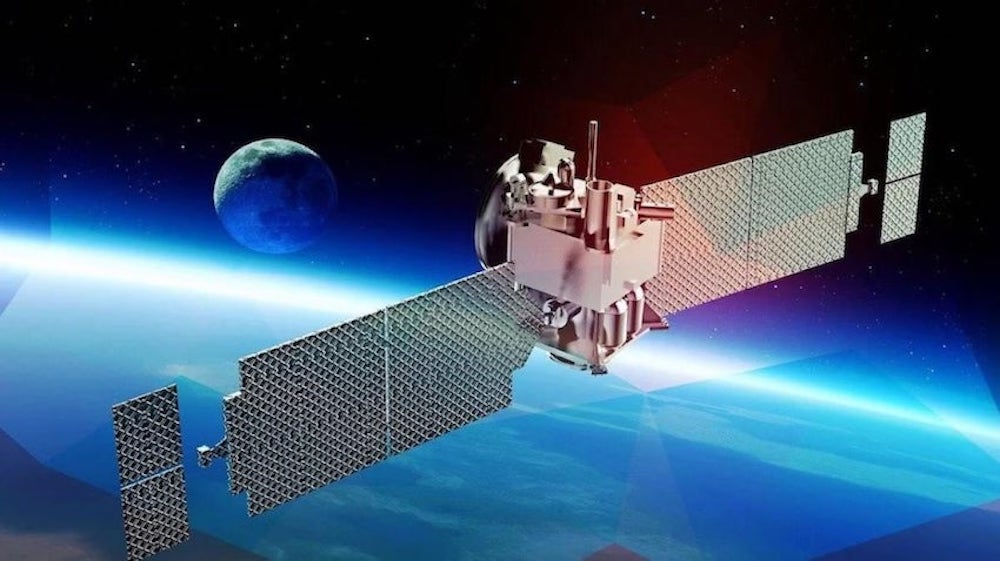
The vast expanse of space has long captivated humanity, holding the promise of scientific discovery and pushing the boundaries of human potential. Today, this celestial frontier is no longer just a realm for exploration; it’s rapidly transforming into a thriving economic zone – the space economy.
The Current Landscape: A Flourishing Ecosystem
The space economy encompasses a diverse range of activities, including:
- Satellite Manufacturing and Launch Services: This traditional segment involves building, launching, and operating satellites for various purposes like communication, Earth observation, and navigation.
- Space Exploration: Government-backed space agencies and private companies are actively involved in robotic and human missions to the Moon, Mars, and beyond.
- In-Space Resource Utilization (ISRU): This emerging field focuses on extracting and utilizing resources like water ice found on the Moon and asteroids for spacefaring purposes.
- Space Tourism: Suborbital and orbital spaceflights are becoming increasingly accessible, paving the way for a nascent space tourism industry.
The global space economy is currently estimated to be worth over $469 billion [1], with the private sector playing an increasingly prominent role. This growth is attributed to several factors:
- Technological Advancements: Reusable rockets, miniaturization of electronics, and developments in artificial intelligence are significantly reducing the cost of space access and operations.
- Commercialization of Space: Private companies are actively investing in space ventures, creating a more dynamic and competitive landscape.
- Growing Demand for Space-Based Services: The applications of space technology are expanding rapidly, with increasing reliance on satellites for communication, navigation, and Earth observation data.
Revolutionizing Industries: A Ripple Effect on Earth
The space economy isn’t just about ventures beyond our planet; it holds immense potential to revolutionize various sectors on Earth:
- Communication and Connectivity: Satellites provide vital communication infrastructure, enabling internet access in remote areas and facilitating global connectivity. Advancements in satellite constellations like Starlink promise even broader coverage and faster internet speeds in the future.
- Environmental Monitoring and Sustainability: Earth observation satellites play a crucial role in monitoring climate change, tracking deforestation, and managing natural resources. Data from these satellites helps governments and organizations implement sustainable practices and address environmental challenges.
- Navigation and Precision Agriculture: GPS technology, enabled by space infrastructure, provides precise positioning data for various applications. This is crucial for efficient transportation, logistics, and precision agriculture techniques that optimize resource usage.
- Disaster Management and Response: Space-based observation systems provide real-time data on weather patterns, wildfires, and natural disasters. This information is critical for early warning systems, disaster preparedness, and effective response measures.
Innovation Engine: A Catalyst for Scientific Progress
The space industry has historically been a breeding ground for innovation, with technological advancements developed for space exploration often finding practical applications on Earth. Examples include:
- Medical Imaging: CT scan technology originated from the need for X-ray astronomy in space.
- Wireless Communication: Satellites played a crucial role in the development of cellular networks.
- Water Purification Systems: Technologies designed for water recycling in space missions have applications in water purification for remote communities.
As the space economy flourishes, it’s expected to further accelerate scientific progress by:
- Material Science: The harsh environment of space necessitates the development of new, high-performance materials with applications in various fields like aerospace, construction, and medicine.
- Robotics and Automation: Advanced robotics for space exploration will contribute to the development of more sophisticated robots for various applications on Earth, including manufacturing, healthcare, and disaster response.
- Energy Technologies: Research into sustainable energy sources for space missions can lead to advancements in renewable energy technologies on Earth.
Challenges and Considerations: A Responsible Path Forward
While the potential of the space economy is immense, certain challenges need to be addressed:
- Space Debris: The increasing number of satellites and missions in space raises concerns about the creation of space debris, which can pose a threat to operational spacecraft. Sustainable practices and debris mitigation strategies are crucial.
- Accessibility and Equity: While the space economy offers significant benefits, ensuring equitable access to space-based resources and technology for all nations is vital to prevent the creation of a new economic divide.
- International Cooperation: Addressing global challenges like climate change and asteroid threats requires international collaboration and the establishment of clear legal frameworks for space exploration and resource utilization.
The Road Ahead: Embracing the Opportunities
Despite the challenges, the potential benefits of the space economy outweigh the hurdles. Here’s how we can navigate the path forward:
- Investing in Research and Development: Governments and private entities need to invest in research and development of new technologies that address space debris mitigation, sustainable space exploration practices, and advancements in areas like space-based solar power and asteroid mining.
- Fostering International Collaboration: International treaties and agreements are crucial for regulating space activities, ensuring responsible resource utilization, and promoting peaceful exploration. Collaborative efforts can address global challenges like climate change and potentially pave the way for joint space missions.
- Building a Skilled Workforce: The burgeoning space economy demands a skilled workforce with expertise in areas like aerospace engineering, robotics, space law, and data analysis. Educational institutions and training programs need to adapt to equip future generations with the necessary skills to thrive in this new domain.
A Glimpse into the Future: A World Transformed
As the space economy matures, we can expect to witness several transformative developments:
- Space-Based Manufacturing: Manufacturing facilities in space could become a reality, leveraging the microgravity environment to produce high-purity materials and components that are difficult or impossible to manufacture on Earth.
- Resource Extraction from Asteroids: Asteroids hold vast quantities of valuable resources like platinum, nickel, and water ice. Advancements in space mining could provide access to these resources, potentially meeting Earth’s growing demands and mitigating the environmental impact of terrestrial mining.
- Space Tourism: A Flourishing Industry: Suborbital and orbital space tourism experiences are likely to become more accessible and affordable, opening up space travel to a wider range of individuals.
The Final Frontier: A Stepping Stone to the Stars
The space economy presents a unique opportunity to push the boundaries of human endeavor. It’s not just about economic gains; it’s about scientific discovery, fostering international cooperation, and inspiring the next generation of scientists, engineers, and explorers.
By embracing the potential of the space economy while addressing the challenges responsibly, we can embark on a new era of exploration, innovation, and collaboration, shaping a future where the benefits of space exploration reach every corner of our planet and propel humanity towards the vast unknown.
Further Considerations:
- The ethical implications of space exploration and resource utilization need careful consideration.
- The potential militarization of space poses a significant threat and necessitates international efforts to ensure peaceful exploration and development.
- Public engagement and fostering a sense of global ownership over space endeavors are crucial for garnering long-term support and ensuring the sustainable development of the space economy.
Stakeholders Shaping the Space Economy
The burgeoning space economy is not a solo performance; it’s a complex symphony requiring the coordinated efforts of various stakeholders. Each group plays a crucial role in propelling this economic engine forward:
1. Governments:
- Setting the Stage: Regulatory Framework: Governments establish the legal framework for space activities through national space agencies and international treaties. This includes regulations for:Safe and responsible space explorationDebris mitigation to prevent space clutterAllocation of orbital slots for satellitesResource utilization in accordance with international law
- Investing in Research and Development: Government funding fuels research in critical areas like:Advanced propulsion systems for cost-effective space travelSustainable space exploration practicesTechnologies for space-based applications like solar power generation
- Fostering International Collaboration: Governments play a vital role in:Establishing international agreements for peaceful space explorationCoordinating efforts to address global challenges like climate change through space-based solutions
2. Private Sector:
- Driving Innovation: Private companies are at the forefront of technological advancements in the space industry:Developing reusable rockets to reduce launch costsCreating new satellite constellations for broader internet accessPioneering space tourism ventures
- Investing in Space Infrastructure: Private companies are actively involved in:Building and launching satellites for communication, navigation, and Earth observationDeveloping space-based manufacturing facilitiesExploring possibilities of asteroid mining for resource acquisition
3. Academia and Research Institutions:
- Cultivating the Next Generation: Universities and research institutions are crucial for:Educating and training the future workforce in aerospace engineering, space law, and related fieldsConducting cutting-edge research in areas like space materials science, robotics, and propulsion systemsContributing to the development of new space technologies
4. Non-Profit Organizations and Advocacy Groups:
- Raising Public Awareness: These organizations play a vital role in:Educating the public about the benefits of space exploration and the space economyInspiring the next generation to pursue careers in STEM fieldsAdvocating for responsible and sustainable space development
5. The Public:
- Building Public Support: Public interest and support are crucial for:Securing government funding for space exploration endeavorsEncouraging private sector investment in the space economyFostering a sense of global ownership over space exploration
Collaboration is Key:
The success of the space economy hinges on effective collaboration between these stakeholders. Open communication, knowledge sharing, and coordinated efforts are essential for:
- Addressing complex challenges like space debris mitigation and resource utilization.
- Establishing clear legal frameworks and ethical guidelines for space activities.
- Ensuring the equitable distribution of the benefits of space exploration for the betterment of humanity.
Examples of Collaboration:
- Public-private partnerships between government agencies and private companies are accelerating space exploration initiatives.
- International space agencies collaborate on missions like the International Space Station, fostering scientific exchange and technological advancements.
- Educational institutions and space agencies work together to develop training programs for the future space workforce.
Final Thoughts: A Universe of Potential Awaits
The vast expanse of space has beckoned humanity for millennia, and today, we stand at the precipice of a new era – one where the cosmos is no longer just a realm for exploration, but a burgeoning economic frontier. The space economy holds immense potential to revolutionize numerous sectors, foster scientific breakthroughs, and address global challenges.
As we embark on this exciting journey, it’s crucial to acknowledge the symphony of stakeholders involved. Governments must provide a clear legal framework and invest in research, while the private sector fuels innovation and drives technological advancements. Academia plays a vital role in nurturing the next generation of spacefaring minds, and non-profit organizations ensure public engagement and responsible development. Ultimately, the success of the space economy hinges on the collective effort of all stakeholders, working in unison towards a shared vision.
However, venturing into the unknown necessitates a cautious approach. Addressing space debris mitigation, establishing ethical guidelines for resource utilization, and ensuring equitable access to the benefits of space exploration are paramount. International collaboration is vital to navigate these challenges and foster a peaceful and sustainable future in space.
The space economy is not merely about economic gains; it’s a testament to human ingenuity and a potential catalyst for a brighter future. By harnessing the power of innovation, embracing international cooperation, and ensuring responsible development, we can unlock the immense potential that lies beyond our planet. The final frontier beckons, and as we venture forth, we carry with us the collective dream of a future where the stars are not just a distant twinkle, but a testament to the boundless potential of humanity.
This journey into the cosmos is not without its challenges, but the potential rewards are immeasurable. As we strive to push the boundaries of human endeavor, let us do so with a sense of responsibility, collaboration, and a shared vision for a future where the benefits of space exploration reach every corner of our planet and propel us towards a brighter tomorrow. The universe awaits, brimming with potential, and it’s up to us to ensure that our exploration of this vast frontier paves the way for a future filled with wonder, discovery, and the promise of a better tomorrow.








